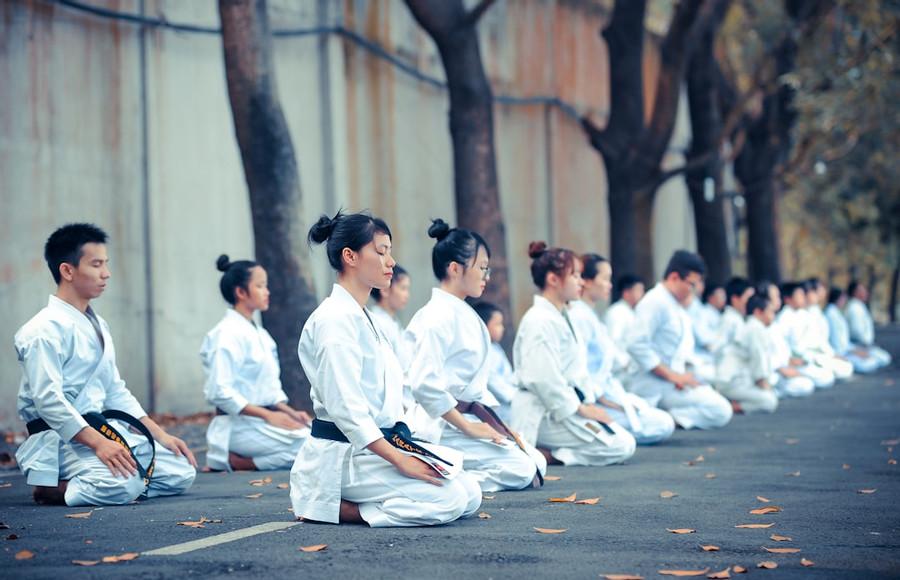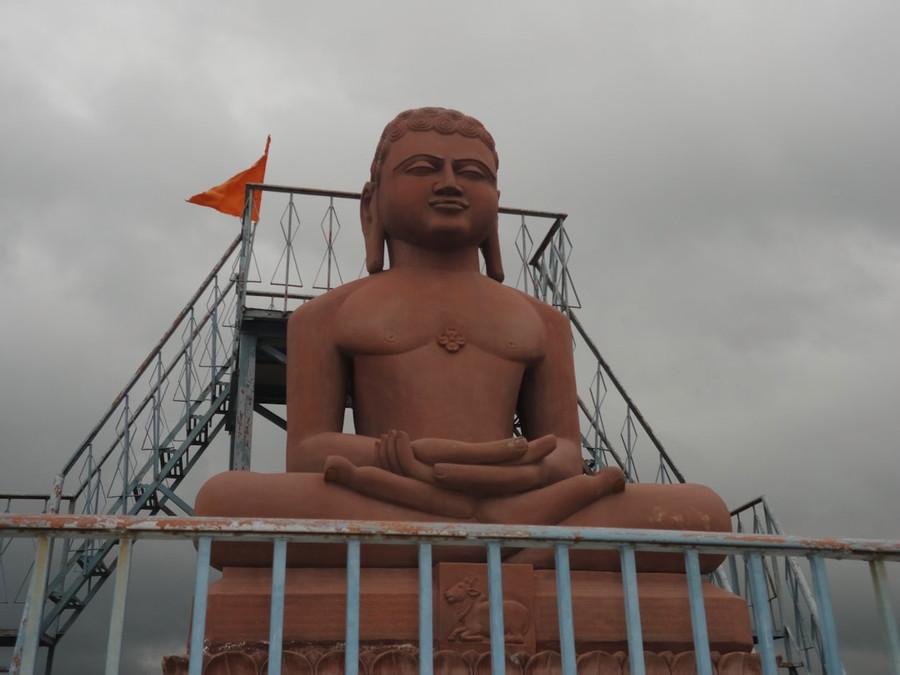Explore the World's Best Ideas
Join today and uncover 100+ curated journeys from 50+ topics. Unlock access to our mobile app with extensive features.
Art of managing of personal lives
People of today are so busy in rapid material progress that they often find themselves in a state of utmost dissatisfaction and unhappiness. As they increasingly become effective in managing their careers and social lives, they become equally ineffective in managing the most fundamental aspect of their lives - ability of having peace of mind.
7
99 reads
SDM technique - way to imbibe right thoughts, values and habits
Satsanga - includes study of good literature, holy company and listening to uplifting music.
Discipline - involves performing one's daily activities efficiently in an organised and scheduled manner.
Meditation - process of watching the thought-flow of one's own mind with a view to gain control over one's emotions. Atleast for 10 minutes every morning and evening.
12
77 reads
What do we actually hustle for?
Propelled by insatiable material, emotional and intellectual goals that modern social life demands one naturally feels the urge to struggle for a better state of life than present one.
And why do we aspire for a better state of life? - to feel happier, to be more at peace, more powerful, more miserable, isn't it?
Sadly, despite our incessant efforts, the peace and contentment eludes us and all efforts appear meaningless.
None are us are truly happy.
7
53 reads
What's your ultimate goal in life?
As we get up everyday and strive to achieve the things missing in our life, we still fall into the herd mentality of pursuing one goal after the another and a vicious circle follows.
The more we chase material goals, the more we suffer.
Uninterrupted peace and unalloyed happiness is our true nature and we are all struggling to return to it.
All the material goals that we seek are not the end-all of life, they are merely the intermediate goals, necessary to at least obtain food and security and to provide for our needs of human body.
The only goal we should be wary of in our life - God realization.
8
46 reads
How to improve?
Introspect to improve, look within yourself, think about your thoughts.
Examine the source of your emotions and seek possible solutions using the 'M' of SDM technique.
Our mind projects its own thoughts and feelings onto the world around it just as a colored prism and labelling things as good or bad.
World has no power to control us unless we allow ourselves to be influenced by external environment.
9
44 reads
Thoughts can make us or break us
Introspection gives us the ability to determine the inner workings of our mind.
Just as before using any machine, we read the manual of the machine first same goes for our mind.
Our mind is nothing but a flow of thoughts like a river is a mass of flowing water. So to purify the mind river, we must purify the thoughts that go in.
One's personality is shaped by the thoughts he possess. The main reason of all the suffering is caused by the unruly and undisciplined thoughts that we allow to wander in our mind.
9
41 reads
Control The Quantity, Quality And Direction Of Thoughts
How to control overthinking - discipline and meaningful engagement.
How to have good thoughts - eliminate anger, greed, desire, jealousy and your mind automatically becomes peaceful.
Our thoughts tend to flow in one direction and leads to doom scrolling on Instagram.
Rather exposing minds to holy ideas i.e.the S of SDM technique can strengthen our inner being and lead to clarity of perception.
10
39 reads
Dhyana, Dharana And Samadhi
3 motions of mind.
Movement of thoughts between one object to another can be controlled by true meditation called 'dhyana', where we choose some object of concentration and fixate our attention on that.
Movement between running in space is called 'dharana' where we fixate our mind in one place.
Movement in time, oscillating between present, past and future can be controlled by 'samadhi' where we lose count of time.
Prolonged dhyana leads to samadhi.
10
34 reads
Lack of self-awareness, resulting in lack of confidence and an abundance of fear in our mind is the prime source of unwanted and unnecessary thoughts that disturb our inner peace.
- AUTHOR
8
23 reads
Work vs Karma
Work = physical power to do something.
Karma = volitional or action with intention, accompanied by desire for fruits.
You come home from work and spend entire evening watching Netflix, in this case he is not doing any physical work but the conscious choice to watch Netflix is Karma.
Process of so many thoughts passing through our mind is karma.
8
23 reads
Law of Karma
None can escape this.
Each one of us is reaping the fruits of our karma performed in the past.
Karma of past impacts present.
Karma of today impacts future.
8
47 reads
Why do good people suffer?
There's no undeserved merit or demerit in the world.
What you've earned by your past actions, none can take away from you.
So, the ones who seem to be having a great life despite not being a good person, it is possible that the righteous karma that they might have done in the past like in previous birth is creating a favourable situation for them and making them eligible to reap the fruits today.
So is true for the good people who suffer today. The unrighteous karma that they might have done today provides them an unfavourable situation.
7
20 reads
What makes a personality?
Every karma produces 2 results - immediate result and a hidden result.
When you burn your finger in fire, immediate result is you scream in pain, hidden result is a latent impression created in your subconscious that you become wary of fire and impression of fear is created.
So, the nature of impression depends on the nature of the karma and these collective impressions of our mind are called 'samskaras' in Sanskrit and this determines our personality.
Thus, our personality is primarily shaped by the 'samkaras' from previous births, and not our parents, not our environment, not our upbringing.
5
24 reads
IDEAS CURATED BY
Every book is a journey, and I'm here to invite you to join me on the adventure of a thousand words.
CURATOR'S NOTE
Who can beat ancient Indian wisdom when it comes to spirituality and way of living life? This book is an excellent compilation of all that you need to steer your life in the right direction.
“
Discover Key Ideas from Books on Similar Topics
3 ideas
Personality Development
Swami Vivekananda
14 ideas
Mastery: The Keys to Success and Long-Term Fulfillment
George Leonard
1 idea
The Tao of Coaching
Max Landsberg
Read & Learn
20x Faster
without
deepstash
with
deepstash
with
deepstash
Personalized microlearning
—
100+ Learning Journeys
—
Access to 200,000+ ideas
—
Access to the mobile app
—
Unlimited idea saving
—
—
Unlimited history
—
—
Unlimited listening to ideas
—
—
Downloading & offline access
—
—
Supercharge your mind with one idea per day
Enter your email and spend 1 minute every day to learn something new.
I agree to receive email updates











